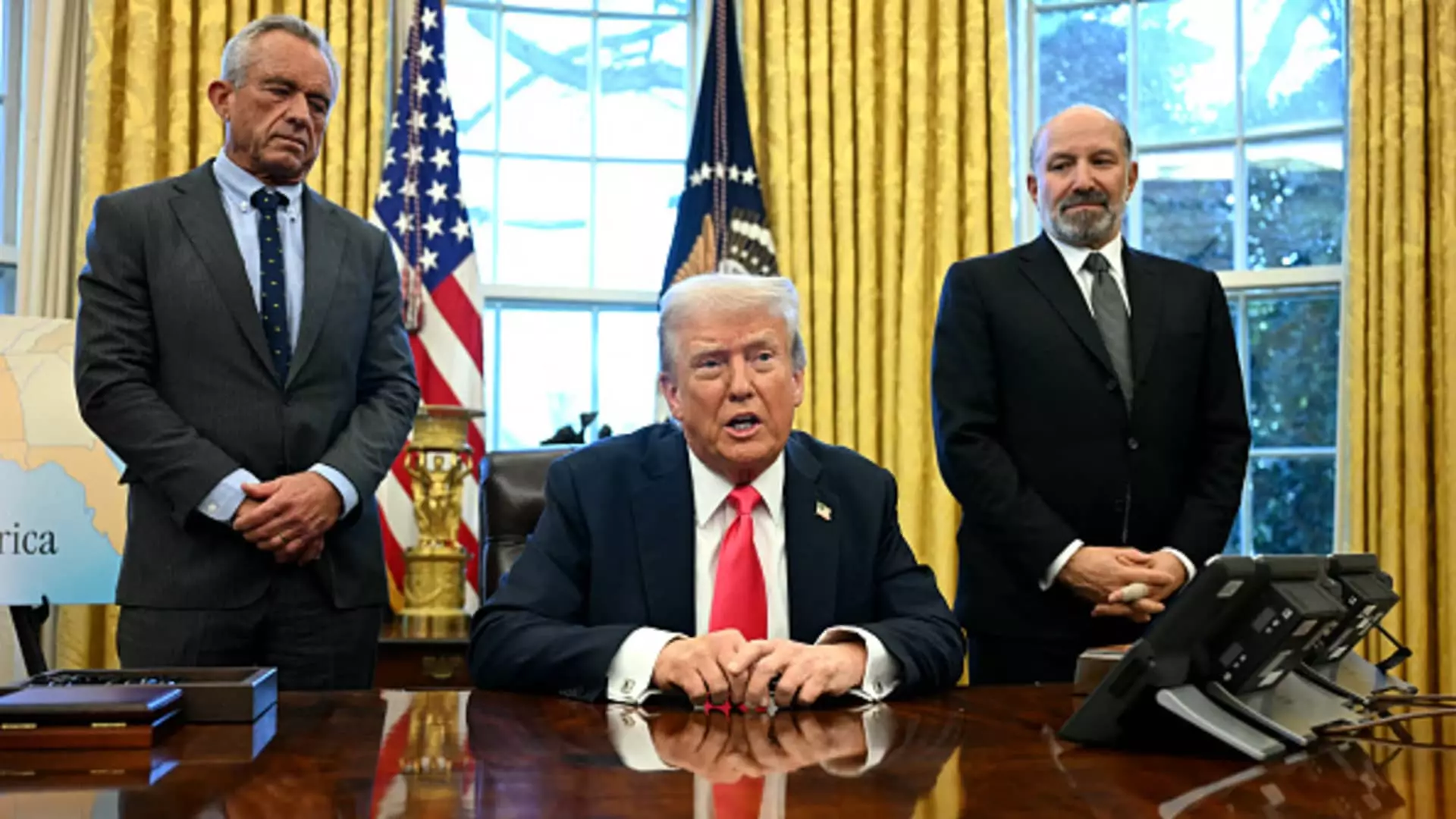The role of leadership in public health agencies, such as the Department of Health and Human Services (HHS), is crucial for safeguarding the well-being of the population. When a person without appropriate qualifications or understanding takes a prominent position, especially one so critical as that of the Health and Human Services Secretary, it threatens the very fabric of health policy and public trust. The most recent controversy surrounding Robert F. Kennedy Jr., a noted anti-vaccine advocate appointed to this pivotal role, highlights a disturbing trend in public health leadership. His actions have sparked a backlash from experts and analysts who argue that his presence promotes misinformation at the expense of established science.
Expert Concerns and Resignations
A recent analysis by research analysts at Cantor Fitzgerald has underscored grave concerns regarding Kennedy’s qualifications. The firm, previously led by Howard Lutnick, now under the scrutiny of analysts Josh Schimmer and Eric Schmidt, voiced strong objections to Kennedy’s appointment. Their unusual note to clients expressed a clear call for accountability, stating the alarming reality: “HHS cannot be led by an anti-vax, conspiracy theorist with inadequate training.” This statement reflects a growing frustration among public health experts who understand the importance of evidence-based policy-making in combating diseases.
In an overtly significant response to the rising tide of skepticism perpetuated by Kennedy and his ilk, Peter Marks, a top official within the FDA’s biologics division, resigned from his position. His departure symbolizes a protest against the undermining of established scientific consensus on vaccination. This move paints a troubling picture of discord within health organizations that are meant to function smoothly in protecting public health.
A Climate of Misinformation
Kennedy’s skepticism towards vaccines is not new; he has long downplayed the importance of critical immunizations, including the combined measles, mumps, and rubella (MMR) vaccine, while advocating dubious treatments in the face of factual science. His approach aligns with a growing trend of misinformation that not only endangers public health but also exacerbates the existing gap in vaccine confidence across communities. The report claims that the Centers for Disease Control and Prevention (CDC) is currently investigating unfounded connections between vaccines and autism, under the lead of a researcher formerly associated with the spread of harmful falsehoods. This direction raises serious questions about scientific integrity and public policy—if unproven theories are legitimized by our health institutions, what hope is there for protecting our children?
Financial Implications vs. Moral Imperatives
The volatility in biotech shares, particularly for influential vaccine developers like Moderna and Novavax, following Marks’ resignation raises eyebrows. The stock market’s reaction can be perceived as a symptom of deeper issues in public health rather than merely economic fluctuations. Analysts noted a significant drop in the shares of these firms—over 8% in both cases—yet it is critical to recognize the distinction between financial metrics and ethical obligations. The analysts made it clear that the problems stem far beyond market stability, emphasizing that public health is paramount and must be prioritized over financial insecurities.
The urgency to combat vaccine misinformation is not merely an issue of stock prices or investment potential; it is fundamentally about saving lives. The loss of life from preventable diseases, such as the recent measles death linked to vaccine hesitancy, should spur outrage and compel action against those who spread dangerous myths.
The Gravitas of Public Responsibility
Kennedy’s rhetoric—advocating for ‘freedom of choice’ while espousing the debunked link between vaccines and autism—betrays a dangerous lack of understanding about the societal obligations we hold as citizens and leaders. This “just take Vitamin A” mentality in lieu of effective vaccinations showcases a disconnect from reality that public health leaders must actively counteract. With every passing day, the consequences of embracing such misinformation multiply, leading to unnecessary sickness and death.
As we scrutinize the ongoing discourse surrounding vaccine skepticism, it becomes painfully clear that the stakes are far too high for complacency. A healthy society hinges not only on access to healthcare but also on credible leadership that embraces scientific advancement and prioritizes community well-being. The battle against vaccine hesitancy requires true champions of public health—individuals who understand that the fabric of our society depends on acceptance of medical science and the broad acceptance of immunization as a societal necessity. Thus, the question remains: will the leaders in our health institutions rise to the challenge or continue to further a narrative detrimental to public health?

